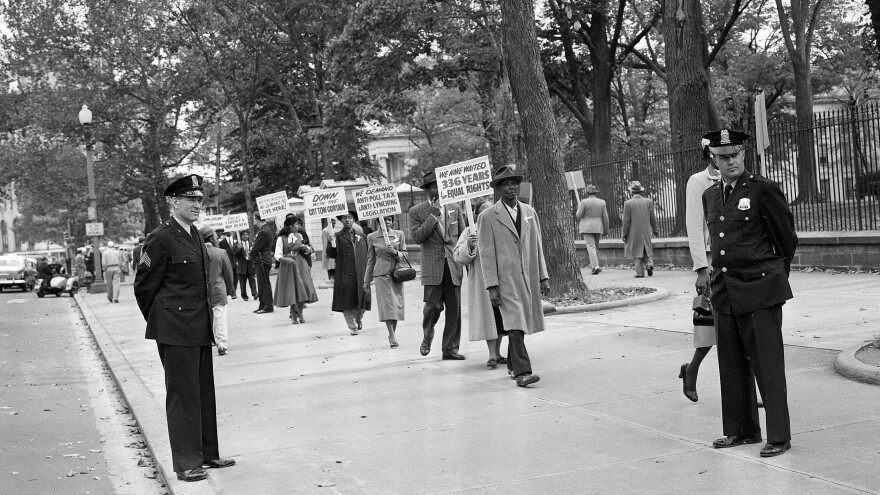New details about one of Mississippi's most infamous murders are coming to light — more than a half-century later. The death of Emmett Till, a 14-year-old black boy who allegedly whistled at a white woman, helped spark the civil rights movement.
Till lived in Chicago, and was visiting his relatives in the Mississippi Delta when he was murdered. His body was mutilated and dumped into a river. The accused were the woman's husband and her half-brother, and their trial drew reporters from both the white and black press.
Researchers have long studied the court proceedings. Among them, Davis Houck, a professor at Florida State University and co-author of a book about the media's coverage of the trial.
It wasn't until a few years ago, however, that Houck learned another black paper — the St. Louis Argus — also had journalists there. But the paper's archive from that time had gone missing.
So he began working with his students to track down the Argus. It was one frustrating dead end after another, as microfilms from that time didn't contain the trial coverage. Then, just a few days ago, they caught a break. Houck and his students figured out the missing issues were in a state historical archive in Missouri.
"This is just going to be another layer for us to process," he says. "Another layer of what it was like to be black in the Jim Crow South covering this case."
Houck says he still has to go through the documents to see if the paper scored an exclusive interview with anyone or if it offers any new piece of evidence at all.
The discovery is already a treasure trove, however, with never-before-seen pictures of the NAACP's Medgar Evers as well as articles written during the trial and long forgotten. Houck says he's savoring the find and taking his time to read through the new discovery. His search, though, is not done yet.
"There's a couple of Canadian newspapers and a London newspaper we're still searching for, and one from New York, actually, too," he says. "So I'm encouraging all the folks who study civil rights history, let's keep looking."
Copyright 2021 NPR. To see more, visit https://www.npr.org.




